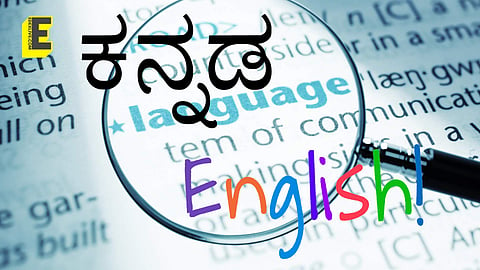

In a first in India to introduce dual-language answers for the same question paper in degree and postgraduate (PG) levels, students attempting these examinations in Karnataka will now be allowed to write their answers in English as well as Kannada while attempting a paper. This will be permitted for the forthcoming examinations in 2023 for the current academic year and onwards, as reported by The New Indian Express.
A decision to this effect was taken at the 23rd general meeting of the Karnataka State Higher Education Council (KSHEC) chaired by Karnataka Higher Education Minister Dr Ashwathnarayan CN.
Currently, students of degree or PG courses have to choose prior to the examination as to which language the answer scripts will be written in. “But the new decision will allow students to write answers for a paper using both the languages. This means, some questions could be answered in Kannada and a few other questions could be answered in English, whichever a student feels is convenient,” said the Education Minister, stated the report by The New Indian Express.
Moreover, KSHEC Vice-Chairman, Prof B Thimmegowda also confirmed that even a single question can be answered using both the languages, which means mixing both languages while writing a single answer to a particular question.
Explaining the decision, Prof Thimmegowda said, “The decision is being taken so that there is no language barrier for the students. While we are expecting that not a lot of students will make use of this, it is to give an opportunity for students from the rural areas to be understood while writing their examinations,” he told The New Indian Express.
What about evaluation?
The Department of Collegiate and Technical Education (DCTE) Commissioner Pradeep P had said last week that a majority of students attending government colleges come from socio-economically poor backgrounds and had problems with expressing themselves in English.
On whether dual-language answers would pose problems in evaluation, the KSHEC chairman said, “Teachers are fluent in their respective languages and should not face any difficulties. We have noticed that Science and Commerce stream students are more comfortable with English, while Arts stream students are comfortable in Kannada. The teachers are familiar with the languages, and will be able to evaluate the answers.”
However, some experts were critical of the move. One, not wanting to be named, said the decision has come with just about three months to go for assembly elections and is being done with an eye on polls. “Bringing politics into education is not a good idea. Language barriers should not be created in education. The government is trying to appease all, but at the wrong time, without thinking of the repercussions. On one side, the government wants more students from Karnataka to compete in international exams, but on the other, it is lowering the standard of education and communication by doing this. The state government is also using NEP (National Education Policy) as a shield to implement such things, but it is actually picking and choosing,” he said.
Translation to promote higher education in regional languages
Besides this, as per the aspiration of NEP 2020, to promote higher education in regional languages, the KSHEC meeting decided to undertake translation of qualitative books into Kannada. It was also decided to constitute a high-level committee to make use of technology in achieving this.
The minister said that in the meeting, it was also decided to make arrangements for tribal studies at the existing Karnataka State Folklore University, instead of setting up a new tribal university.
